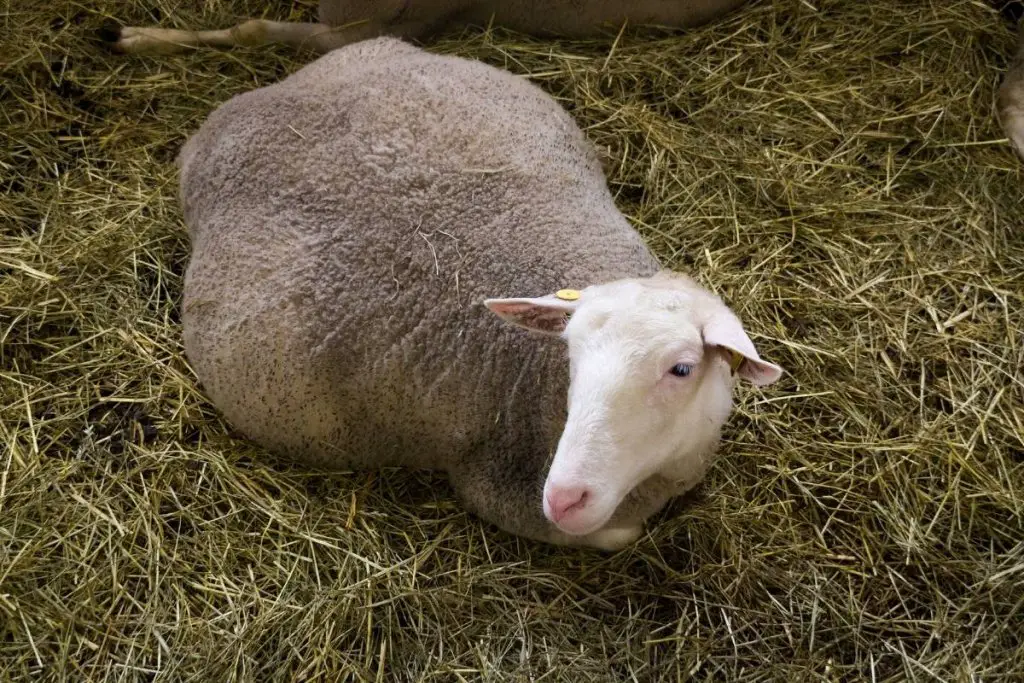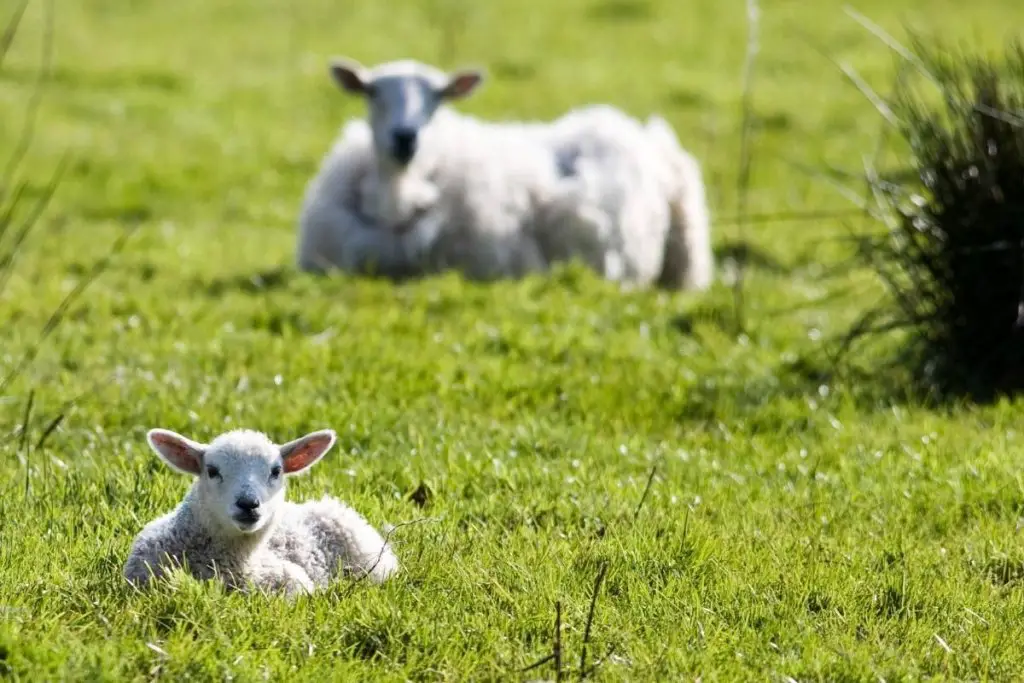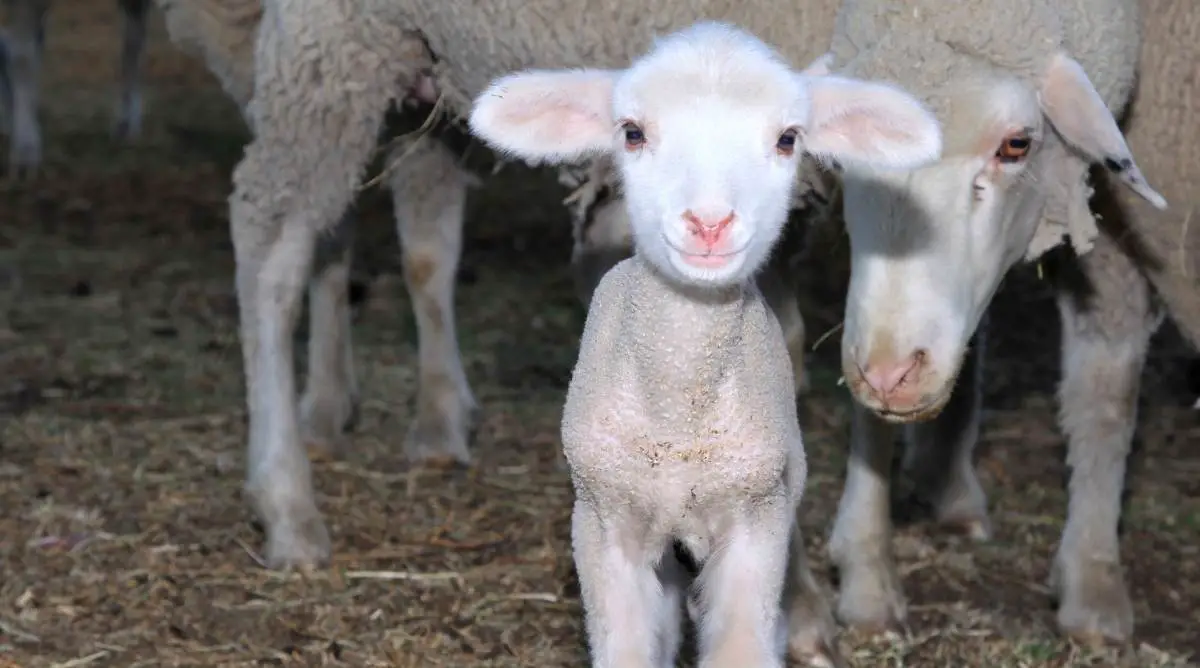To tell if a sheep is pregnant, you can run a blood test or an ultrasound, look for physical or behavioral changes in your sheep, or watch for changes in milk production. If you're unsure, have a veterinarian examine your sheep.
Table of Contents
How to tell if a sheep is pregnant
Sheep pregnancies aren’t obvious in their first weeks or months, and it may take an experienced farmer or veterinarian to notice the subtle signs. These signs include:
Physical Changes

Physical changes in pregnant sheep may include vaginal discharge, changes in urine color, increased appetite, weight gain, higher body temperatures, larger udders, and a bump under the tail near the vulva.
The first physical sign of pregnancy is the presence of a vaginal discharge. This is white, yellow, or green in color, and clear or slightly cloudy. The discharge may have a slightly fishy smell.
Their urine may become dark yellow and tinged with blood, which indicates that the fetus is developing.
The animal may also have an increased appetite. These factors, along with the developing lamb, lead to noticeable weight gain later in the ewe’s pregnancy.
Ewes may exhibit a higher body temperature during pregnancy. Usually, the increase is merely about 1-2 degrees higher than their usual temperature.
The ewe may also have a bump under her tail and near the vulva.
Pregnant ewes will have higher progesterone levels in their urine and saliva, as well as larger udders.
Behavioral Changes
When ewes get pregnant, they become disinterested in rams, lie down to rest more, and eat more.
Since pregnant ewes do not secrete pheromones during the breeding season, rams become disinterested in them (and pregnant ewes show no interest in rams).
Pregnant ewes undergo hormonal changes and may experience a higher body temperature, mood swings, and increased irritability.
Milk Production
A pregnant sheep will start producing milk during her last trimester of pregnancy.
Once the placenta is released from the ewes body, she will produce colostrum.
Basic tests (without the help of a vet)
A few tests you can do without a veternarian’s help are:
- Use a calendar: Mark a calendar at the start of the breeding season to know when to check your ewe for pregnancy. Compute for the start of the estrus cycle (2-3 weeks after giving birth). Then, observe the ewes and rams when they are in heat (usually lasts between 24-36 hours).
- Keep records: Keep records of when mating happens, estrus cycles, and which rams were mated with which ewes.
- Notice when rams and ewes in heat are disinterested in mating: See how rams interact with ewes. The ewes they ignore may be pregnant.
- Touch the sheep’s belly: Further along in pregnancy, touch the sheep’s belly to feel for the outlines of a lamb.
Tests a vet can help with
Veterinarians can confirm 100% if a ewe is pregnant or not.
Here are some methods they use:
- Urine test: The urine test can help verify if the ewe is pregnant through the presence of higher hormone levels and the examination of urine color.
- Blood test: Testing blood is more likley than a urine test to give accurate results.
- Ultrasound: An ultrasound can confirm pregnancy beyond a doubt and helps you determine the number of lambs to expect.
What to do once your ewe is pregnant

Here’s how to keep your ewe happy and comfortable during the gestation period:
- Make sure the ewe has a safe place to rest. This reduces stress levels, increasing the chances of a safe and uncomplicated birthing process.
- Provide adequate food: Make sure you have adequate food appropriate for pregnant ewes. They eat more than when they’re not pregnant, so easy access to nutritious food is important.
- Create a clean and tidy space for lambing: Prepare for lambing season by getting the designated area neat and tidy. Sterilize the teats and bottles (if you’ll be bottle feeding). Prepare any supplements and medications that your newborn lambs may need.

